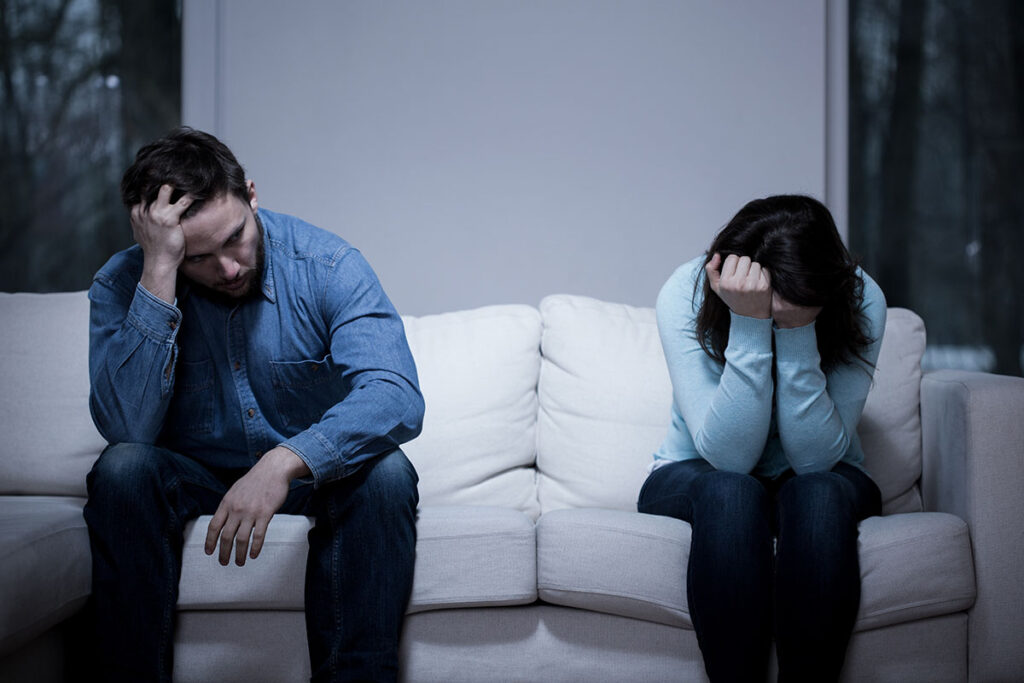Many women seeking addiction treatment were initially introduced to drug use by a romantic partner or spouse. The connection between women and relapse has strong ties to relationships. Sometimes, it isn’t until they start exploring their patterns in therapy that women realize how their romantic or sexual relationships were triggers for their addiction and, very likely, subsequent relapse.
For women grappling with dual problems of addiction and intimacy issues, recognizing and breaking a pattern of dysfunctional romantic associations is vital to effective treatment and relapse prevention. A women’s addiction treatment center, such as the one at Recovery Ranch, can offer support and resources that promote long-term recovery and wellness.
What’s the Connection Between Women and Relapse?
Research investigating gender differences around addiction and relapse is relatively recent. One of the early studies found that women, unlike men, often start drinking or using drugs due to their relationships. Additionally, women are more likely than men to begin using substances due to relationship triggers following a period of sobriety.
Do Relationships Cause Relapse?
Not only can relationships lead women into addiction, but they can also significantly increase the risk of relapse. For women, relapse is associated with using in the context of romantic relationships, having a stressful marriage, being depressed, and living apart from their children. Studies have revealed that if a woman completes addiction treatment but does not also address any underlying issues with intimacy, she is likely to continue encountering relationship triggers that undermine her recovery.
Women in treatment for cocaine addiction were more likely than men to report negative emotions and interpersonal problems before they relapsed. Further, women are more likely than men to enter codependent relationships. If a woman’s partner is drinking or using drugs, she is more likely to relapse to keep the relationship going.
Women tend to engage more than men in 12-step programs and other self-help support groups following addiction treatment. While 12-step groups support recovery, women in these programs may become involved with others in the program who also have addiction issues, increasing their risk for relapse if a partner relapses.
How to Prevent Women Relapsing Due to Relationships
How can women stop relationships from derailing their recovery? Here are a few tips:
Be Open
Although discussing sex and relationships can be awkward, honesty and openness can help your treatment team identify and address underlying intimacy issues. For many, a women-only recovery program can promote a sense of comfort and safety while discussing intimacy issues.
Set Aside Relationships
It’s a good idea to set aside romantic relationships and sex during the first year of recovery so you can focus on healing. Ongoing counseling for intimacy issues can also guard against relapse. Many addiction treatment centers can customize aftercare programs, including resources to assist those who have problems with intimacy and relationships.
Identify Triggers
For women recovering from addiction and relationship issues, maintaining sobriety depends on gaining insight into addictive behavior patterns around both of these issues. Counselors in a women’s addiction treatment center can help individuals identify triggers for relapse, including those related to relationships, and provide healthy coping mechanisms for dealing with them.
Get Help from the Women’s Addiction Treatment Center at the Ranch
Recovery Ranch is committed to providing holistic treatment for women who struggle with addiction and mental health issues. With a focus on gender-specific treatment, our staff works with each client to create an individualized treatment plan tailored specifically to their unique needs. Our compassionate team supports clients at every step of the path toward healing and long-term sobriety. If you or someone you know is struggling with addiction or mental health issues, please don’t hesitate to contact us at 1.844.876.7680 or fill out our online form.

